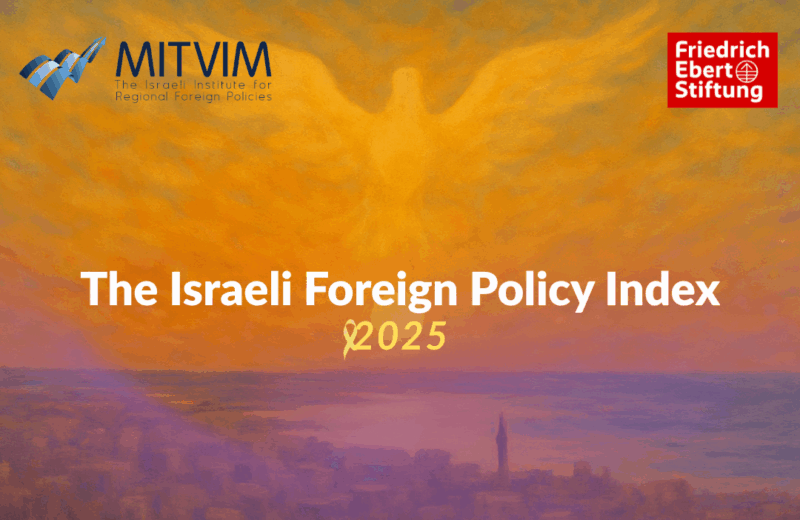 Surveys
/ Strengthening Israel's Foreign Policy
Surveys
/ Strengthening Israel's Foreign Policy
The 13th annual public opinion survey of the Mitvim Institute on Israel’s foreign policy was conducted in late August 2025. The survey was carried out by the Rafi Smith Institute, in collaboration with the Friedrich-Ebert-Stiftung Foundation, among a representative sample of Israel’s adult population (839 men and women, Jews and Arabs, sampled according to Israel’s current political divisions), with a sampling error of 3.3%.
The 2025 Foreign Policy survey, published as we near the second commemoration of the October 7th attack, comes amid a severe humanitarian crisis and preparations for further escalation in the Gaza war. These developments have led to an unprecedented diplomatic crisis and ongoing erosion of Israel’s international image. The survey is released as Israel enters an election year, giving it particular value in clarifying the public’s baseline views/positions on the policies Israel should pursue in various arenas.
The survey looks not only at views on the war in Gaza and Israel’s policy in the West Bank, but also at public attitudes toward Israel’s strategy in the three key arenas of conflict over the past year: Iran, Lebanon, and Syria. It examines how the public sees the possibility of moving from military campaigns to future political-diplomatic arrangements in each of these arenas. It also explores public perceptions of how these conflicts shape Israel’s relations with the Arab world. At the same time, the survey examines public responses to major regional developments, such as the rise of new regimes in Syria and Lebanon and Turkey’s growing regional influence. A distinct focus of the survey is the ongoing deterioration of Israel’s international standing and public perceptions of the steps taken and planned by Western states in response to Israel’s actions in Gaza.
This document presents the survey’s findings in four chapters: Israel’s foreign relations; Israel and the Palestinians; Israel’s relations with regional actors; and Israel’s policy toward Iran, Lebanon, and Syria.


